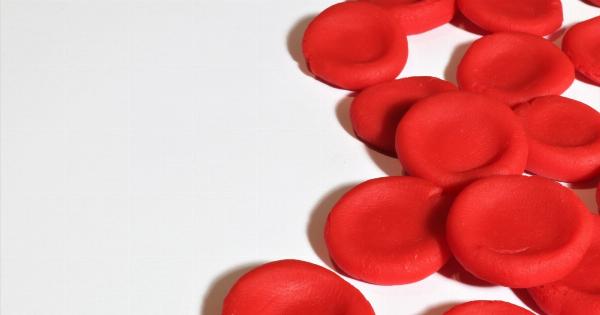World Volunteer Day, celebrated on December 5th every year, is a day to recognize and appreciate the invaluable contributions made by volunteers around the globe.
It’s a day dedicated to giving back to society and making a positive impact on the lives of others. One way you can make a difference on this special day is by donating blood.
Why Donate Blood?
Donating blood is a selfless act that has the potential to save lives.
According to the World Health Organization (WHO), blood transfusions help patients suffering from various medical conditions such as severe injuries, surgeries, childbirth complications, and chronic illnesses. By donating blood, you become a lifeline for these individuals in need.
Additionally, blood supplies need to be constantly replenished as blood has a limited shelf life.
Regular blood donations ensure that there is an adequate supply available whenever and wherever it is needed, including during emergencies and natural disasters.
Eligibility to Donate Blood
While donating blood is a noble cause, not everyone is eligible to donate. There are certain criteria that individuals must meet to ensure the safety and well-being of both the donor and the recipient.
Some common eligibility requirements include:.
1. Age and Weight
Donors must be at least 17 years old and weigh a minimum of 110 pounds (50 kilograms) to donate blood. These requirements help ensure that the donor’s body can handle the blood donation process without any adverse effects.
2. Health and Medical Conditions
Donors need to be in good health and free from any contagious diseases at the time of donation. Individuals with certain medical conditions or on specific medications may not be eligible to donate blood.
It’s crucial to consult with a healthcare professional to determine if you meet the necessary health criteria.
3. Travel History
Depending on the country or region you have recently visited, there might be travel-related restrictions for donating blood.
This is to prevent the potential transmission of diseases that may not be prevalent in your home country but are present in other regions.
4. Lifestyle Factors
Activities such as recent body piercings, tattoos, or engaging in high-risk behaviors like intravenous drug use may temporarily disqualify individuals from donating blood.
It’s essential to disclose any relevant information honestly during the screening process to maintain the safety of the donated blood.
The Donation Process
The blood donation process typically involves the following steps:.
1. Registration and Screening
Upon arriving at a blood donation center or event, you will be required to register as a donor. This includes providing basic personal information and answering a series of screening questions regarding your eligibility to donate.
The screening process ensures that both the donor and the recipient remain safe and healthy throughout the blood donation process.
2. Pre-Donation Health Check
Before donating blood, a healthcare professional will conduct a brief health check. This usually involves measuring your blood pressure, pulse, and temperature.
They may also test your hemoglobin levels to ensure you have adequate iron levels for donation.
3. The Donation
Once cleared for donation, you will be escorted to a donation area or a mobile donation vehicle. A sterile needle will be inserted into a vein in your arm, and the required amount of blood will be collected in a specially designed bag.
The donation process typically takes about 10-15 minutes, during which you should remain relaxed and follow any instructions provided by the healthcare staff.
4. Rest and Refreshment
After donation, it’s essential to rest for a short period and rehydrate your body. Blood donation can cause temporary dizziness or lightheadedness, so it’s important to take it easy for a while before resuming regular activities.
Most blood donation centers provide refreshments such as snacks and beverages to help restore energy levels and prevent any post-donation discomfort.
Post-Donation Care
After donating blood, it’s crucial to take care of your body to ensure a smooth recovery:.
1. Stay Hydrated
Drink plenty of fluids post-donation to stay hydrated. Water, fruit juices, and sports drinks can help replenish the lost fluids more effectively.
2. Avoid Strenuous Activities
Refrain from engaging in any rigorous physical activities or heavy lifting for at least 24 hours after donating blood. This gives your body enough time to recover and reduces the risk of any complications.
3. Eat Nutritious Meals
Consume a well-balanced meal that is rich in iron and protein to aid in the replenishment of blood cells. Include foods like lean meats, leafy greens, whole grains, and legumes in your diet.
4. Spread the Word
One of the best ways to maximize the impact of your blood donation is by sharing your experience with others. Encourage friends, family, and colleagues to consider donating blood and educate them about its significance in saving lives.
The Importance of World Volunteer Day
World Volunteer Day serves as a powerful reminder that each individual has the capacity to make a difference. By volunteering our time, skills, and resources, we can improve communities, uplift others, and contribute to a better world.
Donating blood on World Volunteer Day not only supports those in need but also inspires others to do the same. Together, we can create a ripple effect of kindness and generosity that extends far beyond a single day.
So, this World Volunteer Day, take the opportunity to donate blood and experience the profound joy that comes from knowing you’ve helped save a life.


























